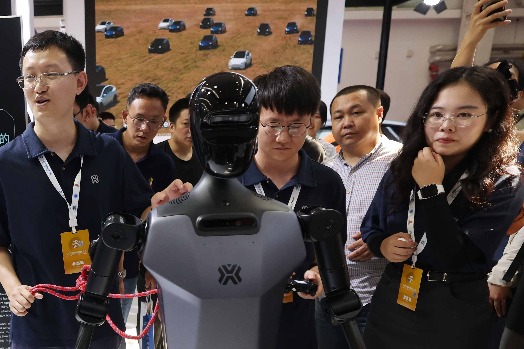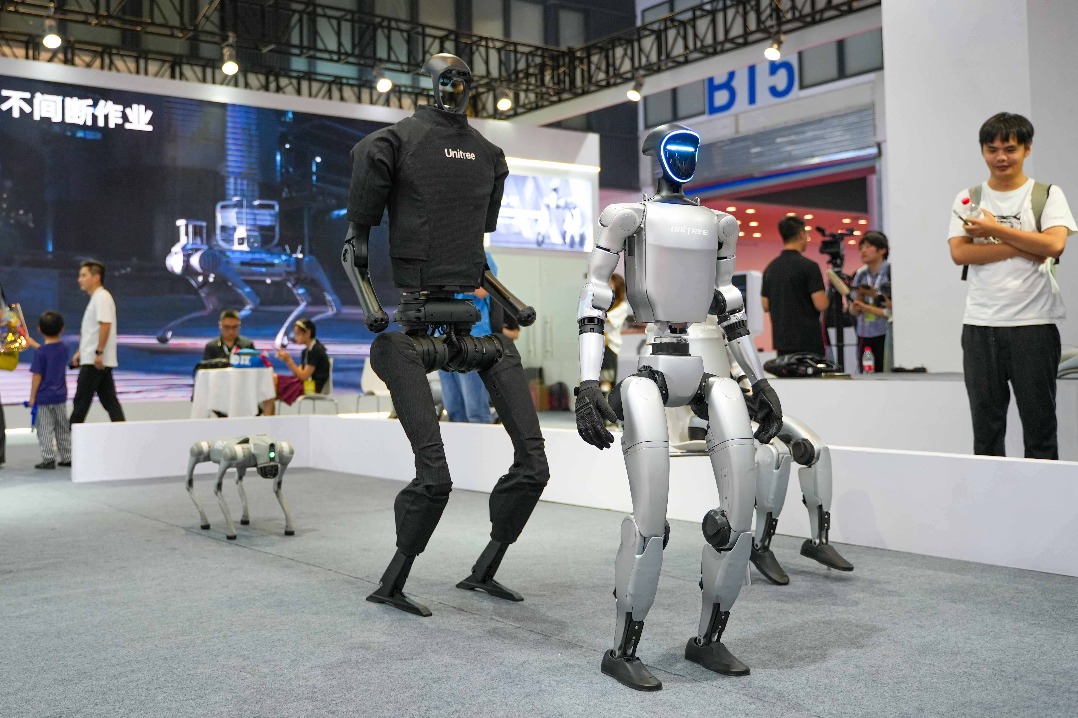China at the forefront of AI adoption


Emerging tech being used increasingly to find solutions to global problems
China has been at the forefront of using emerging technologies like artificial intelligence to find solutions to global problems like the novel coronavirus outbreak, officials and experts said on Tuesday.
"AI has played a remarkable role in helping a slew of industries fight the negative effects of the pandemic, especially in manufacturing, transportation, logistics, medical care and education," said Liu Liehong, vice-minister of industry and information technology, at the World Internet Conference-Internet Development Forum, which ended on Tuesday in Wuzhen, Zhejiang province.
Despite the lingering uncertainties, the scale of China's core AI industries reached 77 billion yuan ($11 billion) during the first six months of this year, Liu said, adding that the number of AI companies exceeded 260.
It is thanks to the joint efforts from the government and companies in AI innovations, especially in dedicated chips, application algorithms, and open platforms, that a slew of technologies such as computer vision and natural language understanding have reached the advanced level globally, Liu said.
The two-day forum attracted over 130 well-known companies and institutions from both home and abroad to showcase their new technologies.
Forty digital economy cooperation projects involving an investment of 63.96 billion yuan were inked during a sub-forum held by the Zhejiang provincial government and China Electronics Technology Group Corp.
Pei Misi, president of 4Paradigm, an artificial intelligence technology and service provider, said that China has transformed from a follower to a leader in AI. "In some AI verticals, like AI applications, China even surpasses countries like the United States," he said.
The country has been ramping up its AI development efforts. In its 14th Five-Year Plan (2021-25) proposals, the nation has highlighted the role of frontier technologies like AI, 5G, supercomputing and quantum computing in development.
According to an industry report, China overtook the US as the leader in AI technology patent filings for the first time in 2019.By October this year, the nation's AI-related patent filings had reached 694,000, up 56.3 percent on a yearly basis.
"The epidemic has made the country's traditional enterprises increasingly aware of the fact that they need to be armed with as much advanced technologies as possible," Pei said.
Domestic companies have realized that replacement of intelligent technologies like AI will be a very fundamental change. If the gap is widened, it cannot be made up in one or two years, he said.
To help tackle the bottlenecks, the company has launched an AI operating system called Sage AIOS, which enables companies to create an AI application scenario by simply typing in the data form.
Ren Xianliang, president of the China Federation of Internet Societies, however, said that while AI brings conveniences, it also creates problems such as data abuse.
"In the light of these problems, the Chinese government has been actively exploring solutions, including establishing laws and regulations for cybersecurity and data security management, to foster the healthy development of the AI sector," he said.




































